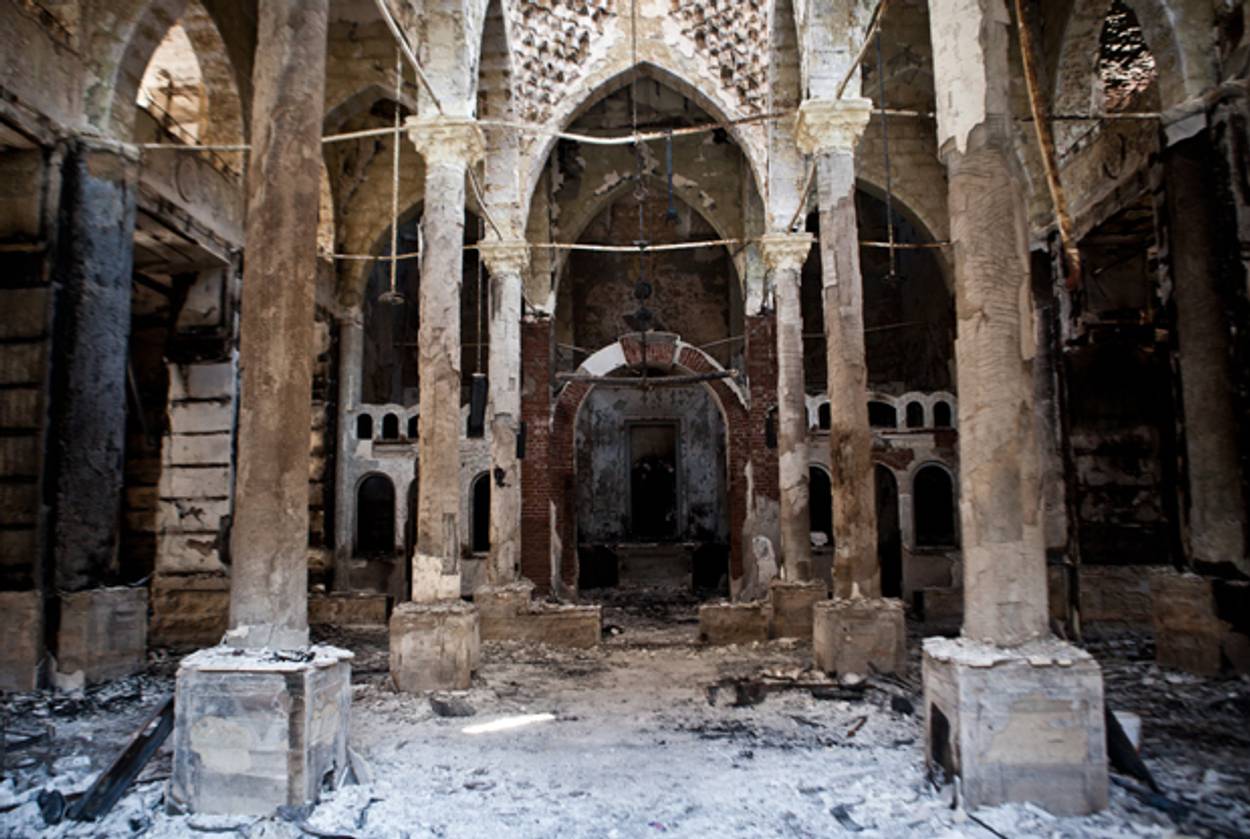Egypt Update: Church Is Canceled, Gen. Sisi Is Jewish
Plus Hosni Mubarak’s encyclopedia of ailments




The twists and turns of events in Egypt this week are starting to make a Russian novel look like kiddie stuff.
First, there are reports that due to the violence some Coptic churches in Egypt canceled their Sunday masses for the first time in more than a millenium-and-a-half. Wrap your head around that idea.
We did not hold prayers in the monastery on Sunday for the first time in 1,600 years,” Priest Selwanes Lotfy of the Virgin Mary and Priest Ibram Monastery in Degla, just south of Minya, told the al-Masry al-Youm daily.
Also compromised (or further compromised), the leadership of the Muslim Brotherhood, whose members have been detained, arrested, or slaughtered by the hundreds in the past week. Earlier this morning, the Muslim Brotherhood’s spiritual leader Mohammed Badie was captured by the Egyptian army. He is expected to go on trial later this month.
Meanwhile, the Muslim Brotherhood is throwing everything they can at the Egyptian military. Fallout continues following an attack that killed dozens of Egyptian policemen in Sinai near the Gaza border yesterday. On a more ridiculous note, a video, translated by MEMRI and now making the rounds, features a former Muslim Brotherhood official accusing Egyptian General Al-Sisi of being a Jew. What would a Jew in Sisi’s boots do? Try to implement the Protocols of the Elders of Zion in Egypt, of course.
To that, add word that Hosni Mubarak, Mohamed Morsi’s predecessor and the decades-long autocratic ruler of Egypt, has apparently been ordered to go free. According to the Times, yesterday’s rumors have turned into today’s possibility after charges that Mubarak ordered the deaths of protesters in 2011 were dismissed.
Few legal analysts thought a release was likely, at least in the coming weeks. But under the government installed last month by Gen. Abdul-Fattah el-Sisi, they say, it is no longer a foregone conclusion that prosecutors will continue to find reasons to detain the former autocrat, who was arrested after the uprising against his rule in 2011.
Some analysts said that even the possibility of Mr. Mubarak’s release, previously unthinkable, provided another sign of the return of his authoritarian style of government.
Despite its symbolism, the release of Mubarak almost seems pointless given that his old allies now run the country in much of the same manner that he did (albeit with less finesse). If you didn’t catch Lee Smith’s post yesterday on what the potential release of Mubarak could mean for Egypt, here’s the money quote:
In releasing Mubarak, Sisi, the strongman who now leads Egypt, is paying respect to the man who led Egypt for 30 years, but he is also further dividing the country. As the revolutionaries, the Tamarrod movement, begin to realize that the man who deposed Morsi and saved them from the jaws of the Brotherhood came not to fulfill the revolution but to put an end to the era that their childish and wanton destructiveness initiated, they, too, will turn against Sisi. How dare he free Mubarak, they will complain, and undo our great, our only, achievement! Whether or not Sisi will shoot them in the streets—as he has the Brotherhood—remains to be seen. One thing is certain, though: He’s no Hosni Mubarak.
What releasing Mubarak from jail might accomplish, though, is finally ending all speculation that the 85-year-old tyrant with jet black hair is actually mortal. Since going to jail in 2011, various reports have claimed that Mubarak has suffered everything from a stroke, a heart attack in 2011, stomach cancer, acute depression, another heart attack in 2012, another heart attack he gave to his wife Suzanne, a coma, as well as a report that he was clinically dead. Then, all for naught, he appeared in court in April of this year looking like his usual eternally 63-year-old self again.
Adam Chandler was previously a staff writer at Tablet. His work has appeared in the New York Times, the Wall Street Journal, the Atlantic, Slate, Esquire, New York, and elsewhere. He tweets @allmychandler.